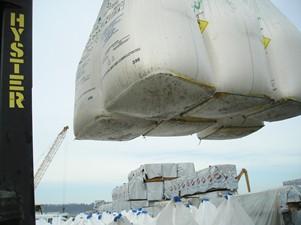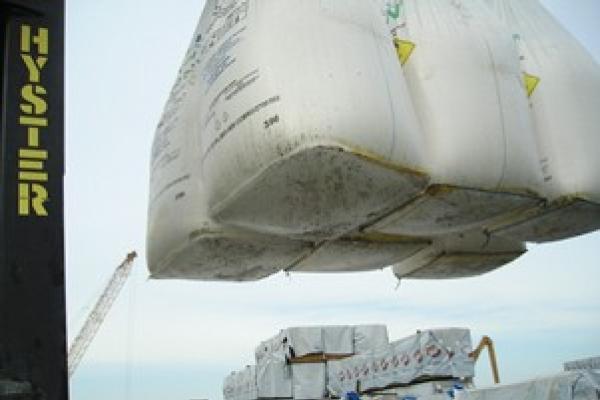
Mark Underhill
Published: March 01, 2011

Subiaco Pte Ltd v Baker Hughes Singapore Pte (The “Achilles”) [2010] SGHC 265
The defendant, Baker Hughes Singapore Pte (“BHS”) booked space on the plaintiff’s owned vessel for the carriage of 3,000mt of bagged barite from Haiphong to two discharge ports in Australia. The movement was agreed on a “Conlinebooking” Liner Booking Note (1978 Standard Form) where the freight clause, Box 10, had the following entry:
“USD 100.00 per revenue tonne free in stowed, l/s/d/liner out hook”
In addition, clause 8 of the Booking Note provided:
“Loading, Discharge and Delivery of the cargo shall be arranged by the Carrier’s Agent unless otherwise agreed…”
During loading operations a crane and the starboard bridge wing of the vessel were damaged by alleged stevedore negligence. Once loading was completed the carriers’ local agent issued two liner bills (both on the “Conline 1978” standard form) for the cargo shipped. The printed terms for the said bills of lading were identical to those found on page 1 of the Booking Note but there was no repeat of the “Freight” terms of Box 10 of the Booking Note.
The owner, Subiaco (S) Pte Ltd (“Subiaco”), commenced an action under the Booking Note before the Singapore High Court claiming a breach of contract by BHS in respect of the damage to the vessel caused by the loadport stevedores. Subiaco’s position was that the stevedores operated crane No 2 without their permission or authority and did so in a negligent manner. They argued that BHS was liable as the “free in stowed l/s/d” term meant that the BHS agreed to “load, stow, secure, lash and dunnage” the cargo both free of expense as well as risk to the Subiaco.
The judgment centred on the construction of the “free in stowed l/s/d” term found in the Booking Note. The starting point was the common law rule that, in the absence of express agreement, the carrier is responsible for the loading and stowage of the cargo. In addition, the Booking Note incorporated a “General Paramount Clause” and was subject to The Hague or Hague-Visby Rules. Article III r.2 of those Rules requires that the carrier properly and carefully loads, handles and stows the cargo shipped. The question was whether the “free in stowed l/s/d” term varied that position and was this enough to transfer to BHS not just the cost of the loading operation but also the associated risk?
The Court considered the earlier case of the “Jordan II” (see earlier website article Liability For Loading Stowing And Discharging Cargo - Owners' Right To Contract Out) where the relevant freight provision in the voyage charterparty included a FIOST clause (“free in and out stowed and trimmed”). The House of Lords held in that case that this clause alone was not sufficient to transfer the responsibility for and risk of loading to the charterer, particularly where this term was only found within a general freight clause. However, in the “Jordan II” there were additional provisions in the charter* which, when read together with the FIOST clause, provided that clear words were required in order to transfer cargo handling responsibility to the charterer.
Unlike the “Jordan II”, in the present case the Court felt there were no other provisions in the Booking Note that sought to transfer the risk of loading onto BHS. In fact, attention was drawn to other specific clauses in the Booking Note dealing with the period of responsibility (cl.4), arrangement of loading by “carriers’ agent” (cl.8) and the “Himalaya” clause (cl.18) that were all deemed consistent with the conclusion that loading operations remained Subiaco’s responsibility. Moreover, it was felt that the natural meaning of “free”, in the phrase “free in stowed”, was that the services performed were only free of cost to the shipowner, not free of risk. The absence of any express, clearly worded term in the Booking Note transferring responsibility meant that liability for the stevedore’s alleged negligence remained with Subiaco.
In this instance the owner faced the harsh reality of being unable to claim an indemnity for the consequences of stevedore negligence where they neither appointed nor paid for their services. The case clearly illustrates that if the parties wish to vary their responsibility for cargo handling operations then mere reliance on the standard “free in stowed”/FIOST-type clauses may be insufficient; care is need when drafting such agreements so that any reallocation of risk is clearly stated in the contract.
*The charterparty in the "Jordan II" contained the following material provisions:
i.By Clause 3 the freight rate was fixed at "$3.3 per metric ton. F.I.O.S.T. - lashed/secured/dunnaged..."
ii.Clause 7 further provided that: "Charterers to have full use of all vessel's gear to assist in loading and discharging cargo..."
iii.Clause 17 stated: "Shippers/charterers/receivers to put the cargo on board, trim and discharge cargo free of expense to the vessel. Trimming is understood to mean levelling off the top of the pile and any additional trimming required by the master is to be for Owners account".


